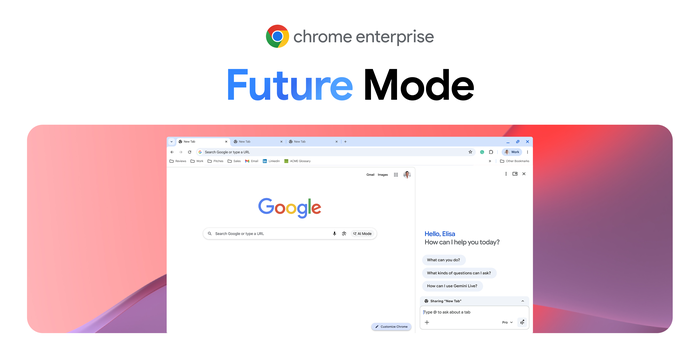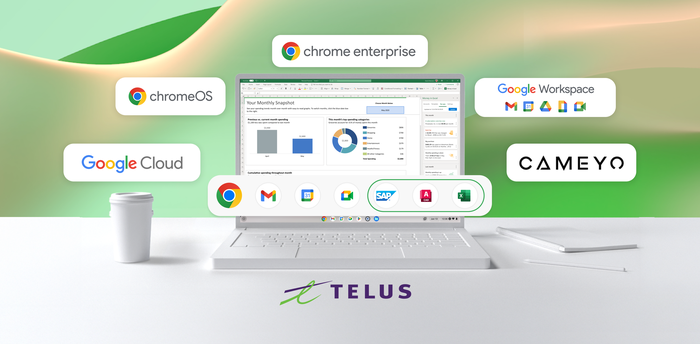Okta and Chrome Enterprise Deliver Context-Aware Access Control to Establish Device Trust

Kaleigh Rosenblat
Chrome Enterprise Senior Staff Software Engineer, Security Lead
Okta and Chrome Enterprise Deliver Context-Aware Access Control to Establish Device Trust
At Google, we are firm believers of the Zero Trust security model, and we make it a core part of our strategy for the products that we use internally as well as the products we offer our customers. Whether you’re building in the cloud, being productive at the office, or on the go, Chrome Enterprise’s goal is to keep enterprise users and corporate data safe on the web.
Last year, we launched the Chrome Enterprise Connectors Framework, enabling seamless integrations between Chrome Enterprise and leading cybersecurity solution providers. This framework allows organizations to take their secure-by-default Chrome ecosystem a step further in their secure enterprise browsing journey based on their security needs.
Chrome Enterprise and Okta Integration for context-aware access control
As supporting a distributed workforce is now the norm for most organizations, access control plays an increasingly important role in an enterprise’s security strategy to prevent unauthorized access, data breaches, and cyberattacks.
Today, we are happy to share that the Okta and Chrome Enterprise Device Trust integration is now available. This integration allows organizations to create authentication policies that leverage device signals, such as browser version and OS firewall status, from managed Chrome browsers on Windows, macOS, and ChromeOS, to gate access to protect enterprise resources. See the full list of available signals here.
The integration between Chrome Enterprise and Okta provides:
Enhanced security through a wide range of device signals and device assurance policies that enable IT admins to block or deny access to applications
Strong access policies, with minimal setup, on top of those configured through an UEM (Unified Endpoint Management)
Compliance with internal device standards and security requirements
Robust application of Zero Trust principles that balances security and user experience
Our security team’s primary objective is to secure internal resources and applications while ensuring a user-friendly experience for authorized users. Thanks to the Okta and Chrome Enterprise Device Trust integration, we've discovered an easy-to-deploy solution that enhances security by incorporating device context into our Okta authentication policies— all with minimal additional effort required from our IT team.
Mark Laubender, Security Engineer and Tech Lead at Snap Inc.
Getting started with the integration is easy. The first step is to make sure that the devices used by your organization are enrolled in either Chrome Browser Cloud Management or in ChromeOS device management. With these tools, you can manage Chrome browser and/or ChromeOS from a single, cloud-based admin console, across all platforms at no additional cost. Setting up is simple. Check out this guide for Chrome Browser Cloud Management and see this guide on how to enroll ChromeOS devices.
Once you have your machines enrolled, you can then follow the setup guide or watch the setup video below.

Chrome Enterprise is dedicated to helping businesses work more securely on the web. We continuously partner with third-party security providers to deliver secure enterprise browsing solutions, enabling organizations to build best-of-breed technology stacks to meet their unique needs. Enterprises can count on Chrome Enterprise Recommended partner solutions to support their workforce, wherever they work.
Learn more about Chrome Enterprise security here.
Helpful links to get you started:
- Help Center Article for Device Trust connectors
- Get Started Guide for Chrome device management
- Setting up Chrome Browser Cloud Management
- Best practices for using Chrome Browser Cloud Management
- Help Center Article for Chrome Enterprise Connectors Framework



